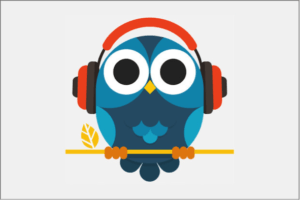Experimenting With Bots
Tawanda Kanhema has a thing for apps. Facebook Messenger apps, to be specific. In November, Kanhema, was a part of the AJ+ team who developed a messaging bot for Election Day 2016.
“We were looking for ideas on how to cover the election differently beyond just creating video and media posts,” said Kanhema. “We wanted to give our viewers and readers a way to connect with our reporting of the election.”
Enter Mila, the Election Bot
Her name was Mila and over the course of Election Day, she fielded pictures and information from thousands of voters across the country, while providing almost instantaneous updates upon request.
Initially, Mila was only designed to send election updates. A user could ask, “Who’s leading in the election?” and Mila would zero in on specific keywords like “leading” and “election,” then send back results from the electoral and popular votes.
About halfway through Election Day, Kanhema said, they realized that users were more interested in what the country was seeing and experiencing than just getting updates.

Building Features That Meet The Needs Of The Audience
“We built in a feature to allow users to send images of what they were seeing at their polling stations and tell their own stories,” said Kanhema who works at a Product Manager within AJ+’s Digital Platform & Innovation Departments. Stories poured in from all over the country. Like the story of a grandfather in Los Angeles who took six of his grandchildren with him to vote. “He wanted to show them what it’s like to participate in the democracy,” Kanhema said.
As users sent in pictures, Mila would respond with, “Great! Can you tell me what this picture is about?” Submissions were reviewed by staff, formatted and branded with an AJ+ template, then shared on Facebook and Twitter. Within a few hours of Election Day, Voter Voices was born.
Kanhema says it ended up being one of the most shared content types on their social media platforms during Election Day. Mila was retired shortly after Election Day, though initially the team had plans to keep her around through inauguration. Mila became a single-use, single-day bot that was built solely to distribute information and collect user-generated content. Much like some of the apps developed from the Rio Olympics. Some of the Voter Voices content can be viewed in a photo album on the AJ+ Facebook page.
“We wanted to gain insight into how people interact with messaging bots, user behavior, expectations, the optimal content type for that type of app and then use that insight to build the next experience,” said Kanhema.
Kimchi, the Podcast Bot
In March 2017, Kimchi was born. “It was an experimental project to gather more insights on how people interact with podcasts and digital audio on Facebook and beyond,” said Kanhema.
This Facebook Messenger bot, developed by a team within Al Jazeera’s Innovation Department, allows users to discover, share and play podcasts. “One of the biggest problems with podcast is discovery,” said Kanhema. “Between the 10-20 good podcasting apps, I really don’t know where to find the latest podcast. And so we wanted to build an interface. A way for people to discover podcasts based on their interests, based on recommendations.”

Searching For Matches To Keywords
When Kanhema says podcasting apps, he’s referring to things like the built-in iOS podcast app, 60db, NPR One, and a handful of other platforms that aggregate podcasts. There are hundreds of thousands of podcasts out there. What Kimchi does is allow users to search for keywords to find specific podcasts and episodes that relate to their searches. From there, users can subscribe to podcasts, add them to their queue, and listen to podcasts without ever leaving the Facebook Messenger app. According to Al Jazeera’s website, the more Kimchi is used, “the smarter it gets in recommending relevant content.”
Kanhema estimates that since Kimchi’s March launch, the bot has a few thousand users. “We are less interested in mass adoption and more interested in gaining insights into how the very few people that have interacted with the bot use it,” he said.
Facebook Messenger functions as a mass-messaging platform, with a reported 2 billion messages exchanged per month and over 100,000 active bots on the Messenger platform.
“We’re still rethinking our publishing strategy and our product strategy around artificial intelligence and bots,” said Kanhema. “There’s no replacement for journalists. There’s no replacement for producers. The journalist, the producer—your super app is your team—who’s responsive, who’s able to communicate with the audience and provide context [and] empathy in real time.”
Originally published April 2017
